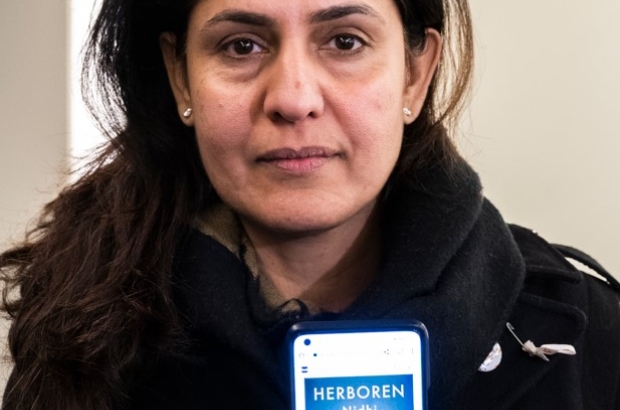- Daily & Weekly newsletters
- Buy & download The Bulletin
- Comment on our articles
Brussels terror trial: Indian air hostess recounts ordeal during bombings
Nidhi Chaphekar, the air hostess whose bloodied face achieved global fame after being photographed during the 2016 attack on Brussels Airport, testified this week at the ongoing trial of the alleged members of the terror cell behind the bombings.
The 47-year-old came to Brussels from India to deliver her harrowing account of the bombings that claimed the lives of 32 people at Zaventem airport and Maelbeek metro station.
“It was 8.00 in the morning, and as crew chief I was carrying several bags when I saw and heard the first explosion,” she said. “I said to myself we are all going to be trampled, I am going to run away without really knowing in which direction to go.
"But it was too late, the second explosion happened shortly after, a ball of fire, my eyes flashed, I couldn't hear anything. I fell unconscious for a while, then shortly after I said to myself – it's a bomb.”
When she came to, she said, her first thoughts were of her family.
“I said to myself, I have to move, because there could be a third explosion. I saw that I still had my legs. For my family, my son who was taking his exams, I told myself that I could not die here.”
When asked by the court president about the now-famous photo of her sitting on the bench, her face creased with trauma and streaked with dried blood, Chaphekar explained that she had been struggling to cope with the shock of the attack.
“I started to feel dizzy,” she said. “In our training, we are taught to reassure others and I applied what I learned. My leg was bleeding, I tried to limit this loss of blood because we did not know when the medical help was going to arrive".
She told the court that a policeman named Alain had covered her up and helped her, after which she was placed on a stretcher and taken to an aid station near the airport hall. Her first concern, she said, was to stay conscious.
“I had to stay awake, thinking of my family. I didn't want to die and I understood that there was still something going on because the medical team left the scene for a while. I was told later when they returned that they had found a third bomb but that everything was fine now.”
Badly burned, the air hostess was taken by ambulance to a hospital in Antwerp. When she arrived at the hospital, Chaphekar was put into a medically induced coma due to her critical condition. She would not wake up for another 23 days.
On the other side of the world, her husband had already been told that a photo of his injured wife was circulating in the international media. It took 10 hours for her family to find out which hospital Chaphekar was staying in. Along with his brother, he received a visa to Belgium and rushed to be by her side.
"After 23 days of artificial coma, I woke up,” she said. She described her husband as being paralysed by the shock. “He prayed then that I would not notice his torment. He came home smiling, he took my arm – but I didn't recognise him.”
Little by little, her memories began to come back to her. But the physical harm remained. On her return to India, she said, she was afraid she would never walk again.
“It was only after about 100 days after the attacks that I was able to go home,” she said. “And my 13-year-old son at the time was very disturbed by it, he fell into a depression, no longer played cricket or basketball. Children are often the ones who take the most on themselves and who suffer afterwards.
"My 10-year-old daughter was in demand all the time because at school they asked her about me and she did not know how to answer. She locked herself in the toilet to cry. And when she came home, she would scream into her pillow. My son wrote in his diary that he must have grown up too soon.”
Years on from the attacks, Chaphekar still has not regained all her memories from before the attack. At times, she gets confused, mixing up places and events.
“In India, given my condition, no one wants to hire me to do what I enjoy,” she said. “They are afraid that I can no longer be at 100% of my potential. It's very hard to hear that all the time.”



















